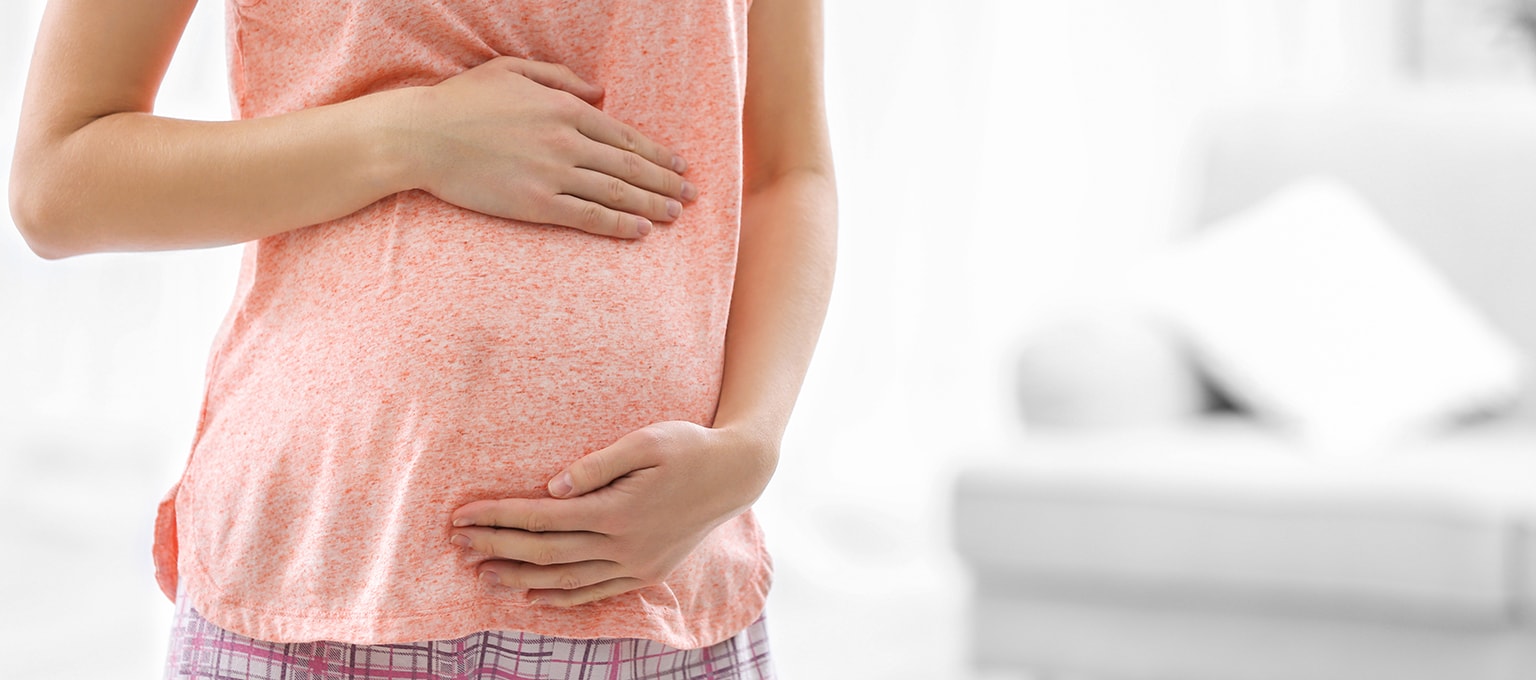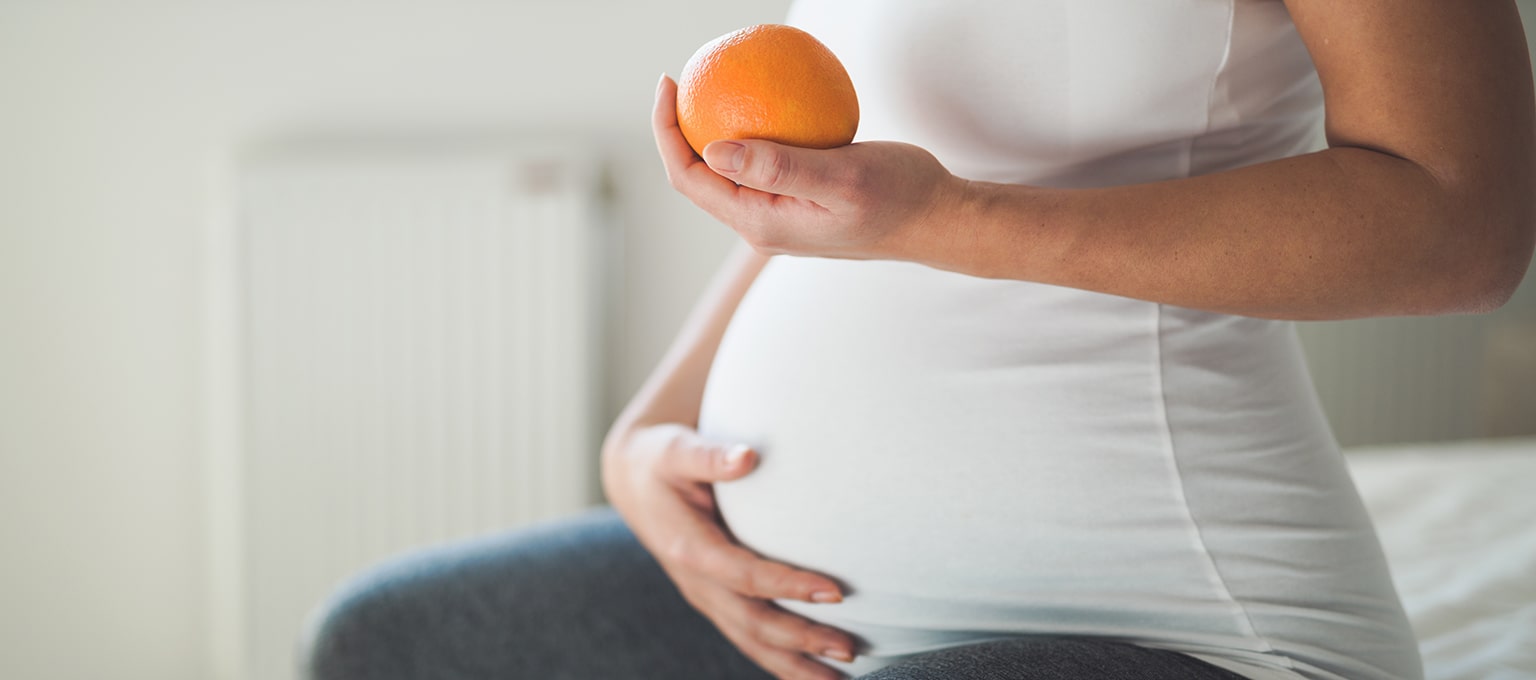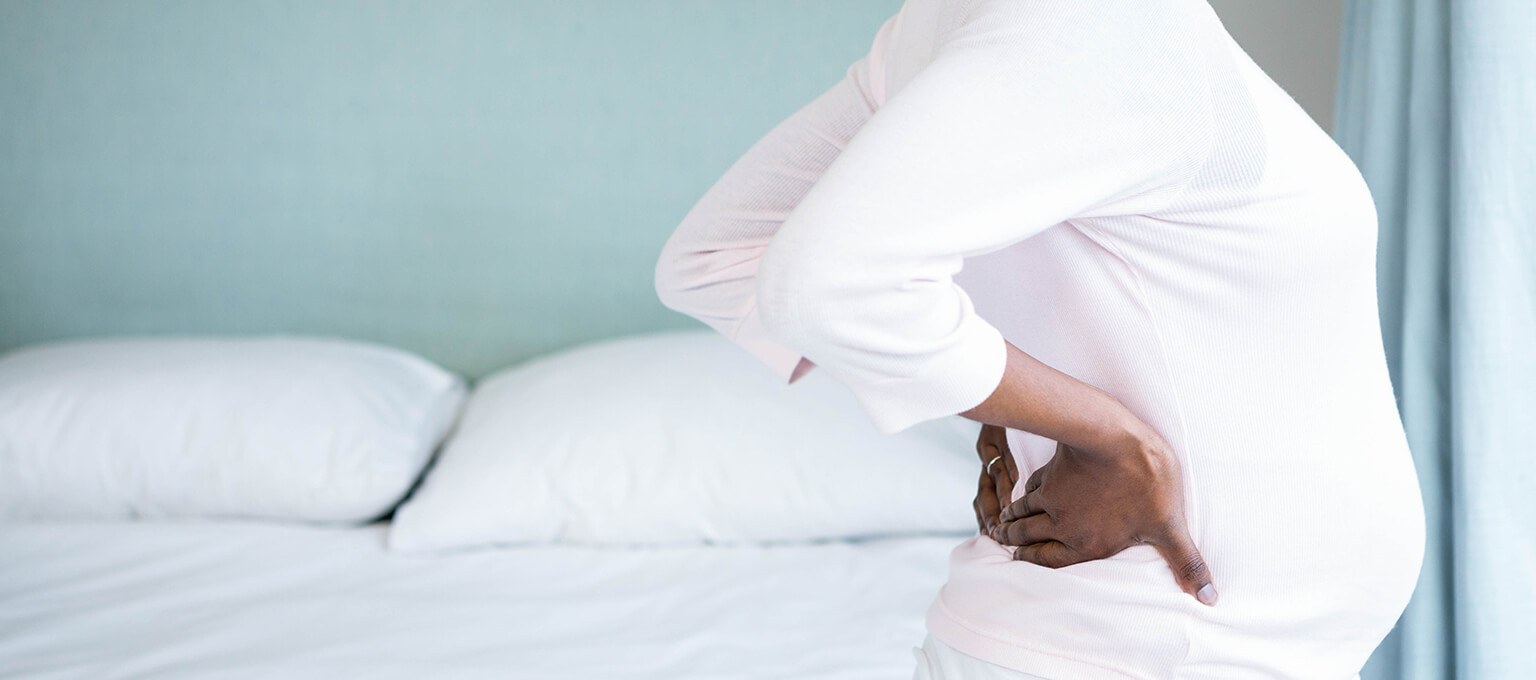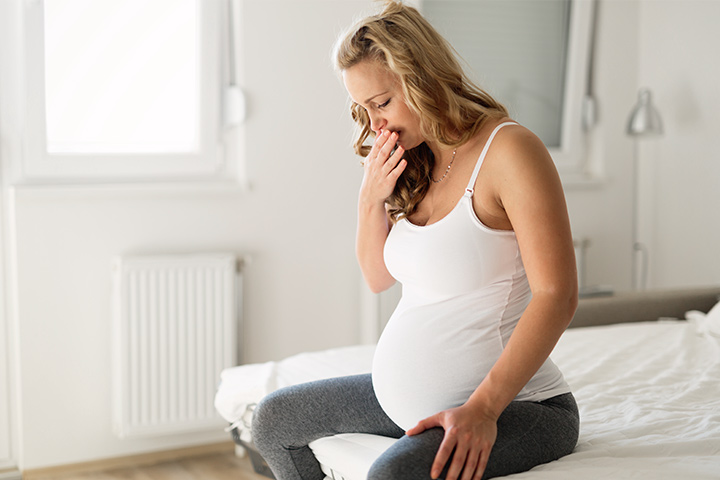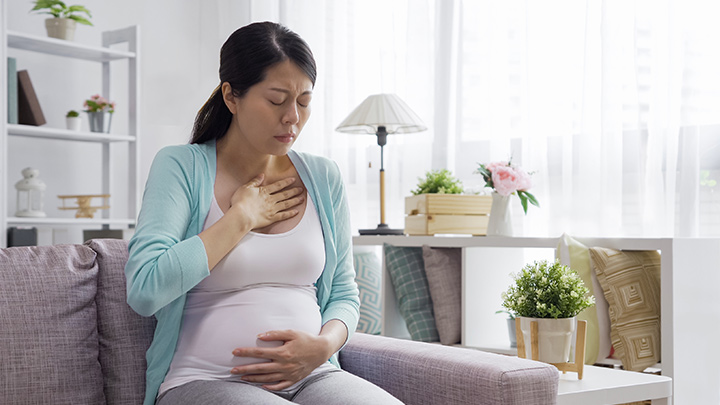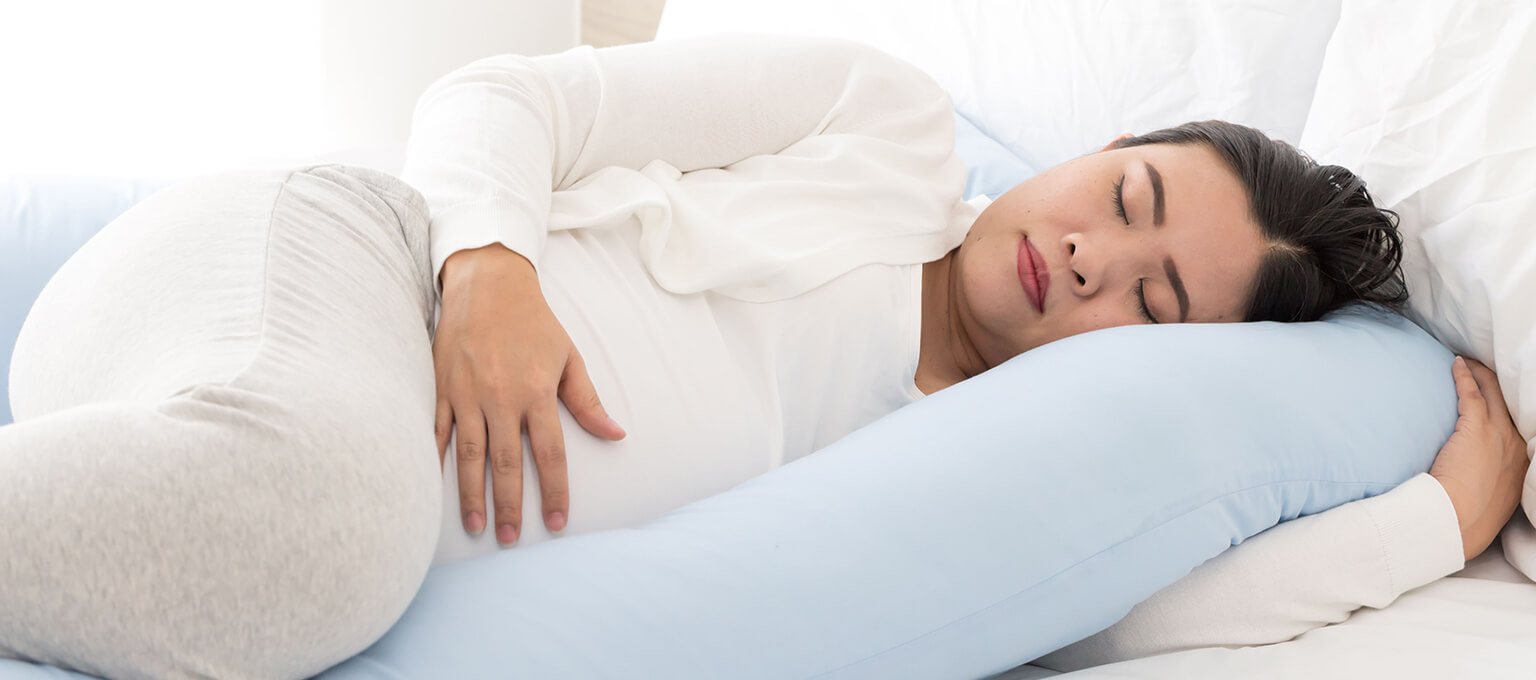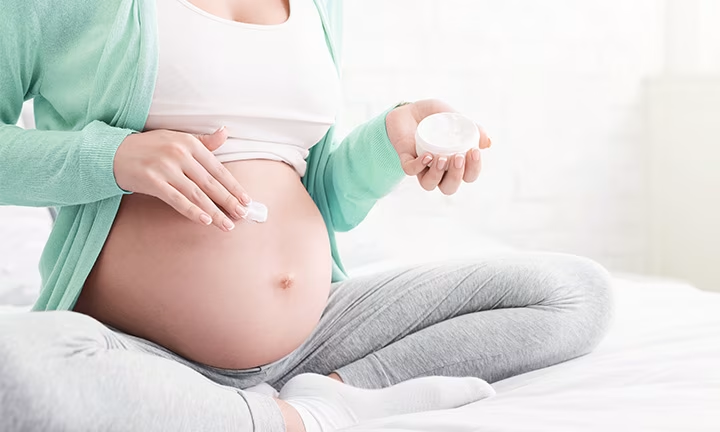
Itching During Pregnancy
Pregnancy brings about many obvious bodily changes and new conditions, like weight gain, a growing belly bump, and possibly some fatigue, mood swings, and nausea. But itching during pregnancy might be one that surprises you. Whether you experience vaginal itching during pregnancy, itchy skin, or just itching all over, you may wonder why no one warned you about this lesser-known nuisance! Itching during pregnancy can often be the cause of hormonal changes or your skin stretching to accommodate your growing baby. We’re here to help you discover more about why it happens and how to get relief from itching during pregnancy.
How Common Is Itching During Pregnancy, and When Does It Go Away?
Although not everyone suffers from this condition, about 20 percent of pregnant people do experience mild or moderate itching at some point during their pregnancy. It could occur at any time, and although it might be irritating and uncomfortable, it’s a normal part of being pregnant. Of course, always consult your healthcare provider if you have any concerns or questions.
But once the scratching begins, it’s hard to stay focused on anything else! Your body itching during pregnancy is challenging, both physically and emotionally, but you can take comfort in knowing that this pesky symptom typically goes away after birth. Hang in there!
Itchy Skin During Pregnancy
If you start to notice your skin itching during pregnancy, know that you’re not alone. As we mentioned above, 2 in 10 pregnant people will experience some itchiness on their abdomen or elsewhere on their body. The itching is typically caused by your growing belly bump, which results in dry, flaky, and stretched skin, sometimes accompanied by a rash.
Along with itching, you might notice some stretch marks on your breasts, tummy, thighs, butt, or upper arms. As the name suggests, stretch marks occur when the skin stretches and loses elasticity due to hormonal shifts. In turn, your stretch marks might also itch!
Tip
Keep in mind that stretch marks, itchiness, and weight gain are natural parts of pregnancy. Most of these uncomfortable signs subside postpartum, but a little exercise and healthy eating can help you bounce back. You can use our Pregnancy Weight Gain Calculator to help you keep track of your recommended weight gain based on your pre-pregnancy BMI.
Breasts Itching During Pregnancy
If your breasts are itching during pregnancy, it’s usually for the same reason as itchiness elsewhere: your skin is expanding, stretching, and drying out. Even during early pregnancy, you might notice some itching and significant changes in your breasts. Don’t be surprised if you grow one whole cup size during your first trimester!
Most of that growth happens due to fat buildup and increased milk glands, all good things in preparation for feeding your baby. But do nipples itch during pregnancy, too? Yep, your entire breast is susceptible to itching, so you may notice itchiness on your areolas.
In Summary
As your skin stretches across your growing body and hormonal levels impact elasticity, you may experience itching all over your skin during pregnancy. Common areas include the belly, butt, breasts, thighs, and arms.
Vaginal Itching During Pregnancy
Vaginal itching during pregnancy, and itching around the urethra, can sometimes occur, and may be more likely to crop up as your pregnancy progresses. You might also notice some pain, burning, or vaginal discharge, all of which may be normal yet uncomfortable. Typically, these symptoms subside after giving birth.
You may experience more vaginal itching during pregnancy because your fluctuating hormones can cause a pH imbalance, which could also lead to a yeast infection. Unfortunately, yeast infections and itching in the vaginal area during pregnancy are quite common, so don’t worry if you’re experiencing symptoms. Your healthcare provider can help you!
Anal Itching During Pregnancy
Of all the itching of your private parts during pregnancy, anal itching might be the most embarrassing. Just remember that your hormones are shifting, and with that comes changes that you can’t control. During pregnancy, it's common to develop hemorrhoids, which are swollen blood vessels around the anus and rectum. You can attribute this to hormonal changes and the frequent pregnancy symptom of constipation.
In Summary
As your hormones shift and you deal with constipation, you may experience more frequent yeast infections and hemorrhoids. At any time, whether during pregnancy or not, these infections can lead to vaginal or anal itching. Speak with your healthcare provider about the appropriate course of treatment, as some over-the-counter treatments might not be safe for your baby.
How to Get Relief From Itching During Pregnancy
It certainly helps to understand why itching during pregnancy happens, but it’s even more helpful to know how to get relief from it. You can ease most itching during pregnancy, whether it's your first, second, or third trimester, with these home remedies. If nighttime itching is bothering you, these solutions can help soothe and calm the irritation whenever it strikes.
Stay Hydrated and Moisturize
When it comes to itching on your skin or breasts during pregnancy, the secret is to stay hydrated and keep your skin moisturized. As your skin stretches and hormones shift, you may develop a drier and flakier epidermis, which can start to itch. Drinking lots of fluids and applying moisturizer, cream, or oil to your belly, breasts, butt, legs, or any other area with expanding skin may help you find some relief.
Take a Cornstarch or Oatmeal Bath
Another way to soothe your skin naturally and at home is with a cornstarch or oatmeal bath. Both cornstarch and colloidal oatmeal (the type of oatmeal used in lotions and bath products) are known to calm irritated skin and might provide some relief. Plus, soaking in a bath sounds pretty nice while pregnant!
Tip
Enjoy a warm soak before hitting the sack to help you relax. Winding down with a bath can help you sleep better and also soothe skin when you're experiencing itching at night during pregnancy.
Wear Loose Clothing
Another simple way to remedy itching during pregnancy is to wear loose, natural clothing. You want to stay cool, and looser clothing made from materials like cotton or linen will keep you breezy. If you’re too warm, it could lead to more itching.
Use an Anti-Itch Cream From Your Healthcare Provider
If you’re suffering from vaginal or anal itching during pregnancy, consult with your healthcare provider for advice and treatment. Some over-the-counter creams may do the trick, but you can also use things like pads medicated with witch hazel (for anal itching) or ointment for yeast infections (it’s best to avoid any oral medication for these symptoms during pregnancy).
Eat a Fiber-Rich Diet
Because hemorrhoids can contribute to anal itching during pregnancy, and hemorrhoids may be triggered by constipation, try eating fiber-rich foods. Enjoying daily fruits and veggies might help, as can a fiber supplement. Just ask your healthcare provider to recommend a pregnancy-safe supplement.
Tip
To help prevent anal itching, try to avoid sitting too much during pregnancy. This kills two birds with one stone, as incorporating daily exercise during pregnancy can also help combat constipation.
Severe Itching During Pregnancy
Although most itching during pregnancy, including vaginal itching, is mild, there is a possibility of experiencing more severe or extreme itching. If this happens, it’s best to consult with your healthcare provider the same day that you notice the symptoms, especially if you’re experiencing severe itching during pregnancy in months 7 to 9 (third trimester) or later.
In Summary
Because some forms of extreme itching during pregnancy can indicate conditions that might pose risks to your baby, it’s best to consult with your healthcare provider ASAP if you experience the symptoms.
FREQUENTLY ASKED QUESTIONS
Itching during pregnancy is quite common. Two out of every 10 pregnant women will experience it at some point, so you’re not alone! If it turns into severe itching or accompanies a rash, especially on your hands and feet, you should contact your healthcare provider.
The Bottom Line
Itching during pregnancy isn’t very comfortable, and it may be one of those pregnancy symptoms that sneak up on you. Luckily, itching is usually nothing to worry about, typically subsides after giving birth, and can be eased during pregnancy (all the way through your third trimester) with some home remedies.
Prepare yourself for other standard pregnancy symptoms by brushing up on the ABCs of pregnancy pains. And check out our Pregnancy Calendar to better understand what each week of pregnancy might bring.
To help you further on your pregnancy journey, download the Pampers Rewards app to earn rewards and discounts on all your Pampers purchases.
- American College of Obstetricians and Gynecologists. Your Pregnancy and Childbirth: Month to Month, 6th ed. (Washington, DC: American College of Obstetricians and Gynecologists, 2015).
- Mayo Clinic. Guide to a Healthy Pregnancy, 2nd ed. (Rochester, MN: Mayo Clinic Press, 2018).
- Mayo Clinic: What can I do to treat hemorrhoids during pregnancy?
- Mayo Clinic: What's the best way to treat a yeast infection during pregnancy?
- Mayo Clinic: Cholestasis of pregnancy
- NCBI: Prevalence of vulvar and vaginal symptoms during pregnancy and the puerperium
Read more about Pregnancy
Related Articles
Join a World of Support
through Pregnancy and Parenthood.
TRACK WITH TOOLS
LEARN WITH EXPERTS
GET REWARDED


